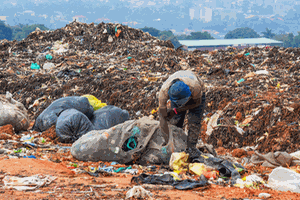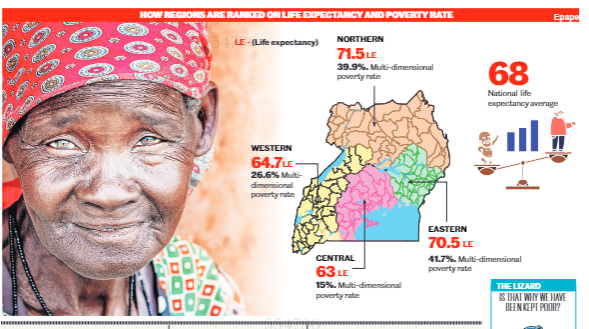Community organisations are key to achieving SDGs

Ipolito T. Mubiru
The 17 Sustainable Development Goals (SDGs) represent global commitments by countries to create a sustainable world.
However, to attain them, the implementation of the key interventions laid out by the SDGs has to start from the grassroots. This is where community organisations come in.
Community organisations focus on issues that affect communities or groups of people. They specialise in local issues which makes them vital stakeholders in the attainment of the SDGs.
According to the Local Leadership, Global Impact report, more than 1,800 community foundations are operating around the world and most of them derive their goals and objectives from the SDGs. This shows that the role that community organisations play in the achievement of the SDGs cannot be undervalued.
When we talk about community organisations, we are looking at local partners who use their convening power and missions to address societal challenges as well as enhance lives locally. Community organisations serve as conduits for philanthropic work which extends beyond societal challenges to include challenges or threats experienced globally.
In practice, community organisations can catalyze the magnitude of change required to prevent the worsening of converging crises that the SDGs seek to address, such as biodiversity loss, climate change, and famine. This is possible if the SDGs are adopted as shared goals for creating sustainable communities and nations.
From another point of view, community organisations can be seen as local authorities holding rich expertise related to change-making locally. They seldom work in silos but by forming alliances with key stakeholders in the private and public sectors, development agencies, and other civil society organisations to execute projects aligned with the SDGs.
Through these alliances, they can address the systematic issues faced in communities on a small scale but with a large impact. With the world becoming a global community, every single challenge such as climate change has the potential to affect everyone. This is where community organisations come in to confront global challenges at a local level by combating threats affecting communities.
Their efforts are part of the wider collective efforts at national and global levels by different actors all focusing on one goal of achieving the SDGs.
Community organisations are also instruments of diversity, equity, and inclusion as they facilitate individuals from different ethnicities, backgrounds, gender, religion and political affiliations to all contribute to similar causes aimed at making the world a better place. Therefore, when we talk about community organisations, we are looking at local instruments of change with the potential to initiate long-lasting solutions to contribute to the achievement of the 17 SDGs.
We are also looking at organisations that work with local people to create much-needed solutions to transform their areas into model societies by enhancing the social fabric of their communities.
Community organizations are already demonstrating to the world that they too can contribute to “No Poverty; Zero Hunger; Good Health and Well-Being; Quality Education; Gender Equality; Clean Water and Sanitation; Affordable and Clean Energy; Decent Work and Economic Growth; Industry, Innovation and Infrastructure; Reduced Inequalities; Sustainable Cities and Communities; Responsible Consumption and Production; Climate Action; Life Below Water; Life on Land; Peace, Justice and Strong Institutions; and Partnerships for the Goals.
Our perceptions of community organisations should therefore change from just looking at them as solvers of societal challenges but also as contributors to the global development agenda.
Effective collaboration, processes, and engagement with stakeholders at the local level are required to accelerate the implementation of the SDGs in communities and achieve significant results to complete the audacious tasks set by the SDGs.
This will necessitate an understanding of the benefits associated with the successful implementation of the SDGs. Achieving the SDGs is a task for everyone.
Mr Ipolito T. Mubiru is ED African Diversity & Inclusion Center




